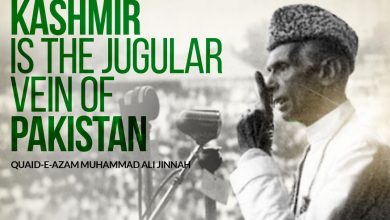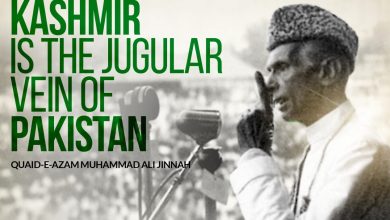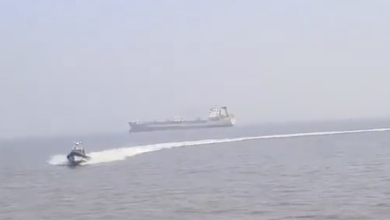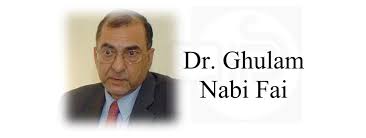Decades on – Kashmiris await exercise of UN-recognized right to self-determination
M R Malik
 The people of Indian illegally occupied Jammu and Kashmir have been continuing a heroic struggle for securing their internationally-recognized right to self-determination for the last over seven decades. India has subjected them to the worst state terrorism for challenging its illegal hold on their homeland throughout this period. It is quite unfortunate that the international community has miserably failed to fulfill its promises made to them regarding the resolution of the Kashmir dispute in accordance with their aspirations. Even the world’s august body, the United Nations Security Council, has not been able to implement its resolutions on Kashmir adopted several decades ago.
The people of Indian illegally occupied Jammu and Kashmir have been continuing a heroic struggle for securing their internationally-recognized right to self-determination for the last over seven decades. India has subjected them to the worst state terrorism for challenging its illegal hold on their homeland throughout this period. It is quite unfortunate that the international community has miserably failed to fulfill its promises made to them regarding the resolution of the Kashmir dispute in accordance with their aspirations. Even the world’s august body, the United Nations Security Council, has not been able to implement its resolutions on Kashmir adopted several decades ago.
On 05 January 1949, the United Nations Commission for India and Pakistan (UNCIP) had passed an important resolution acknowledging the right to self-determination of the people of Jammu and Kashmir. Since then, the Kashmiris on both sides of the Line of Control and the world over have been observing 05 January as the Right to Self-determination. This observance is aimed to remind the world community that the United Nations’ resolutions on Kashmir remain unimplemented even after the passage of several decades.
India had invaded Jammu and Kashmir on October 27 in 1947 and illegally occupied it against the aspirations of the Kashmiris, leading to the creation of the Kashmir dispute. The people of Jammu and Kashmir strongly resisted this invasion and launched a movement to liberate their homeland from the Indian yoke. Their resilience forced India to seek the help of the world community to settle the Kashmir dispute. Sensing a humiliating defeat to its armed forces, India approached the UNSC on 01 January 1948, seeking its help to resolve the dispute. The World Body in its successive resolutions nullified the Indian invasion and called for settling the dispute peacefully.
The 05 January resolution adopted by the UNCIP holds an enormous significance as it states that the question of the accession of Jammu and Kashmir either to India or Pakistan will be decided by the Kashmiri people through the exercise of their right to self-determination in a free and impartial plebiscite to be held under the supervision of the World Body. Despite accepting this resolution, India is applying every brutal tactic in occupied Kashmir to intimidate the Kashmiris and continue its illegal occupation of Jammu and Kashmir.
On 05 August 2019, Narendra Modi-led fascist Indian government repealed the special status of the occupied territory, illegally and unconstitutionally annexing it with India and putting it under strict military and police siege. Since then, the Indian troops have stepped up their state terrorism in IIOJK to force the Kashmiris into submission.
The continued Indian state terrorism since 1947 has resulted in the killing of around 500,000 Kashmiris, arresting and injuring of hundreds of thousands and disappearance of thousands other in custody. However, the worst kind of Indian brutalities have failed to subdue the freedom sentiment of the Kashmiri people and they are committed to take their ongoing freedom movement to its logical conclusion at all costs.
There is no denying the fact that the UN has played an important role in settling many international disputes including East Timor, Kosovo and Southern Sudan. However, it has totally failed to discharge its obligations with regard to the resolution of the lingering Kashmir dispute, resulting in the continued sufferings of the people of Jammu and Kashmir. Emboldened by the criminal silence adopted by the international community and the UN on its brutal actions in occupied Kashmir, New Delhi continues to victimize the Kashmiris for demanding their legitimate rights including the right to self-determination.
The UN must take practical steps without any waste of time to implement its resolutions for settling the Kashmir dispute according to wishes of the Kashmiri people to save them from the Indian state terrorism and ensure durable peace and stability in South Asia. It must fulfill its responsibility sooner than later to save the region from a catastrophe as the Kashmir dispute involves two nuclear powers – Pakistan and India.
Background of Kashmiris’ Right to Self-Determination Day
January 5 is considered an important day in the struggle of the Kashmiri people for self-determination. It was on this day in 1949 that the United Nations Commission for India and Pakistan (UNCIP) adopted a resolution calling for a free and fair plebiscite in Jammu and Kashmir.
The UNCIP was established with the consent of both India and Pakistan and the resolution of January 5, 1949 was agreed and accepted by both the countries. The resolution, therefore, established the legal basis for the right to self-determination of the people of Jammu and Kashmir through a free, fair and impartial plebiscite. It is for this reason that the people of Jammu and Kashmir observe January 5 as the ‘Right to Self-Determination Day’.
It is worthy of note that it was India which had taken the matter to the UN Security Councilon January 01, 1948, after the people of Jammu and Kashmir had strongly resisted its illegal occupation of their soil in October 1947. Sensing a humiliating defeat following a strong movement launched by the Kashmiris, India sought the World Body’s intervention for a ceasefire. This led to successive resolutions by the United Nations in April and August 1948 which nullified the Indian invasion, called for ceasefire and cessation of hostilities and settling the dispute peacefully as per the will of the people of the State of Jammu and Kashmir.
The January 5, 1949, resolution adopted by the UNCIPis of enormous significance as it states that the question of the accession of Jammu and Kashmir either to India or Pakistan will be decided by the Kashmiri people through the exercise of their right to self-determination in a free and impartial plebiscite held under the supervision of the United Nations. Both India and Pakistan had agreed in advance to accept this resolution.








